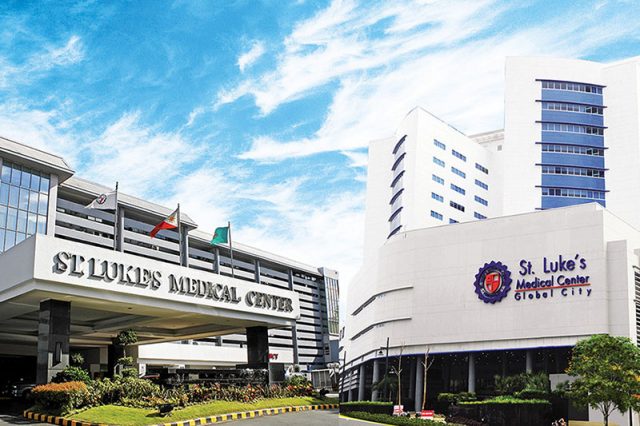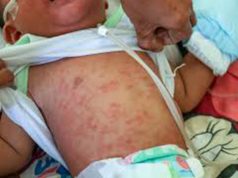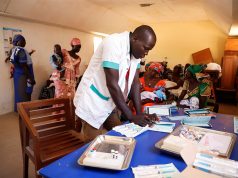
A hospital raised awareness about the symptoms of monkeypox after the health department announced the country’s first case on Friday.
The case is that of a 31-year-old Filipino who arrived from overseas on July 19.
The patient previously visited countries with documented monkeypox cases.
At least ten close contacts were identified by the Department of Health, which includes three people from the patient’s household.
The government said it is working to secure vaccines against monkeypox but added that not everyone needs to be immunized from the virus.
The World Health Organization recently declared the viral disease a global health emergency, on par with the prevailing COVID-19 pandemic.
St. Luke’s Medical Center has released an infographic to raise awareness about its symptoms and other important details.
It may manifest 5 to 21 days after exposure. Some of them are the following:
- Pox rashes
- Fever higher than 38 degrees Celsius
- Swollen lymph nodes
- Headache
- Muscle pains (myalgia)
- Back pain
- Weakness or lack of energy (asthenia)
The hospital also said that the public may contact St. Luke’s Emergency Care Department if they are experiencing any symptoms or have had close contact with a probable or confirmed case.
They may also call the following hotlines:
- St. Luke’s Quezon City: (632) 8723-0101 local 1912 or 5433
- St. Luke’s Bonifacio Global City: (632) 8789-7700 local 1032 or 1035
RELATED: Monkeypox symptoms to monitor, according to DOH
The United States’ Centers for Disease Control and Prevention said that monkeypox can spread through the following:
- Direct contact with the infectious rash, scabs, or body fluids;
- Respiratory secretions during prolonged, face-to-face contact, or during intimate physical contact such as kissing, cuddling, or sex;
- Touching items (such as clothing or linens) that previously touched the infectious rash or body fluids;
- Pregnant people can spread the virus to their fetus through the placenta
Humans can also get it from infected animals when they are scratched, bitten, or eating their meat. They can also acquire the virus if they use products from an infected animal.
The DOH said that it is working with the WHO to acquire monkeypox vaccines.
Prior vaccination to smallpox is about 85% effective in preventing monkeypox.









